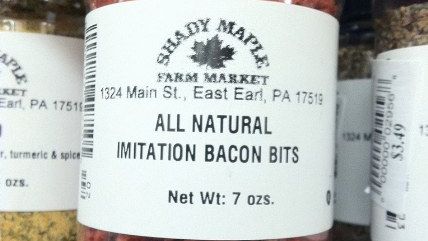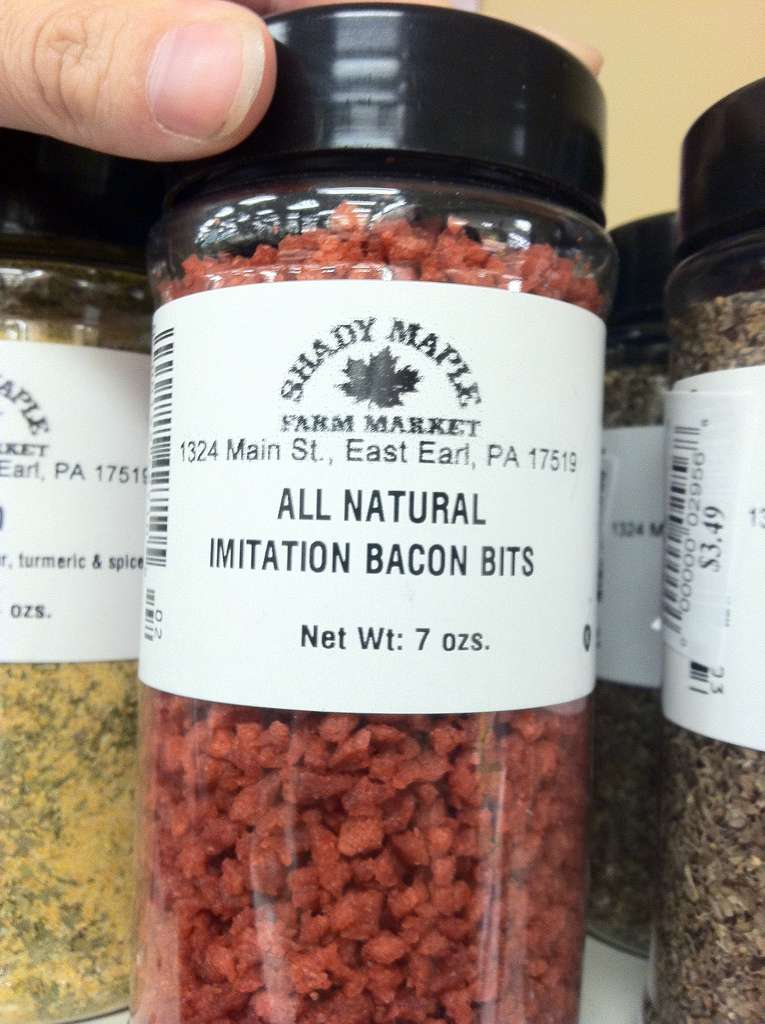The FDA's Push to Define 'Natural' Food is an Exercise in Futility
Let consumers, advocates, and courts decide.

Earlier this week, the comment period closed in the FDA's rulemaking pertaining to the use of the term "natural" on food labels. The FDA also this week announced it planned to reconsider use of an even more loaded term: "healthy."
Reading through a sampling of the comments submitted to the agency in the "natural" rulemaking, it's easy to see why issuing a universal regulation that would define the term is impossible.
For example, one commenter urged the FDA to adopt "a stricter definition of the word "natural,'" though she did not proffer a definition. One anonymous commenter suggested the agency ban use of the term. Another commenter wrote that no food should be labeled as natural if "it has been processed and put into a container." Yet another said the term "means that you don't have to add anything to enhance the product."
Experts have also weighed in. Pace Law School Prof. Jason Czarnezki recently suggested in a recent Time piece that use of the term "natural" be governed by the dictionary definition of the term.
I couldn't agree more. But Prof. Czarnezki would have the FDA be the arbiter of its use. We don't need that. Courts already take into account dictionary definitions when they consider, for example, whether use of a term constitutes fraud.

In fact, the push to define what's "natural" came in the wake of a slew of lawsuits over use of the term. Back in 2013, I wrote about a handful of cases that centered on use of the term. In one case, a plaintiff sued the maker of Chobani, claiming in part that the its Greek yogurt was mislabeled as "all natural" because it contains coloring made from fruits and vegetables.
Another case concerned Mission tortilla chips, which contain GMO corn. At the time, U.S. District Court Judge Yvonne Gonzalez Rogers gave the FDA six months to make "an administrative determination[ on] the question of whether and under what circumstances food products containing ingredients produced using bioengineered seed may or may not be labeled" as "all natural." Three years later, here we are.
An FDA definition of "natural" or any other food terminology won't do anything at all to clear up the matter. And it won't avoid litigation. Judge Rogers and her peers will simply end up ruling on another sort of cases. People will sue companies they claim are misusing a defined term. The FDA will fine companies for doing the same. Companies will sue other companies for misusing a defined term. Advocacy groups will sue the FDA because they don't like its definition, or the way it's enforcing the definition.
In short, lawsuits will happen either way. And they may happen more often if the FDA defines the term. That's because, for several years now, food companies have been scared off from using the word by the aforementioned slew of lawsuits over use of the term. As a result, a company boasting about their "natural" food these days is about as common as a company using label space to brag that its food contains gluten. This is evidence that litigation works. In my view, it's also evidence that regulations defining terms like "natural" and "healthy" are not needed.
What's more, it's not as if government agencies are very good at this defining thing. For example, sometimes the government defines foods in a highly irregular manner—one that wrongly ignores the centuries-old dictionary definition of the term. Recently, I discussed a federal court ruling (in a case in which I served as an expert) in which a judge ruled that the state of Florida may redefine skim milk in such a way that skim milk that contains exactly one ingredient—skim milk—can be prohibited from being labeled as skim milk. In other cases, the FDA has defined a term, only to then accost a company that uses a similar (but not identical) word to define a similar (but not identical) food.
Ultimately, if you believe the FDA should be in the business of defining food terms, where—if anywhere—is your endpoint? Should the FDA next take the important step of defining "yummy," "crunchy," or "climatarian"?
"The idea that the FDA needs to define every word that has ever been used to refer to food is ludicrous," I told Agence France-Presse in 2014. "The occasional lawsuit helps keep companies honest and that has always been the case."
As I've stated time and again, the FDA should permit any food label so long as it contains minimum the required information—including the name of the food manufacturer and an accurate list of ingredients—and doesn't make any patently fraudulent claims. The agency's role should end there. Consumers, competitors, watchdogs, and attorneys can figure out the rest.


Show Comments (79)